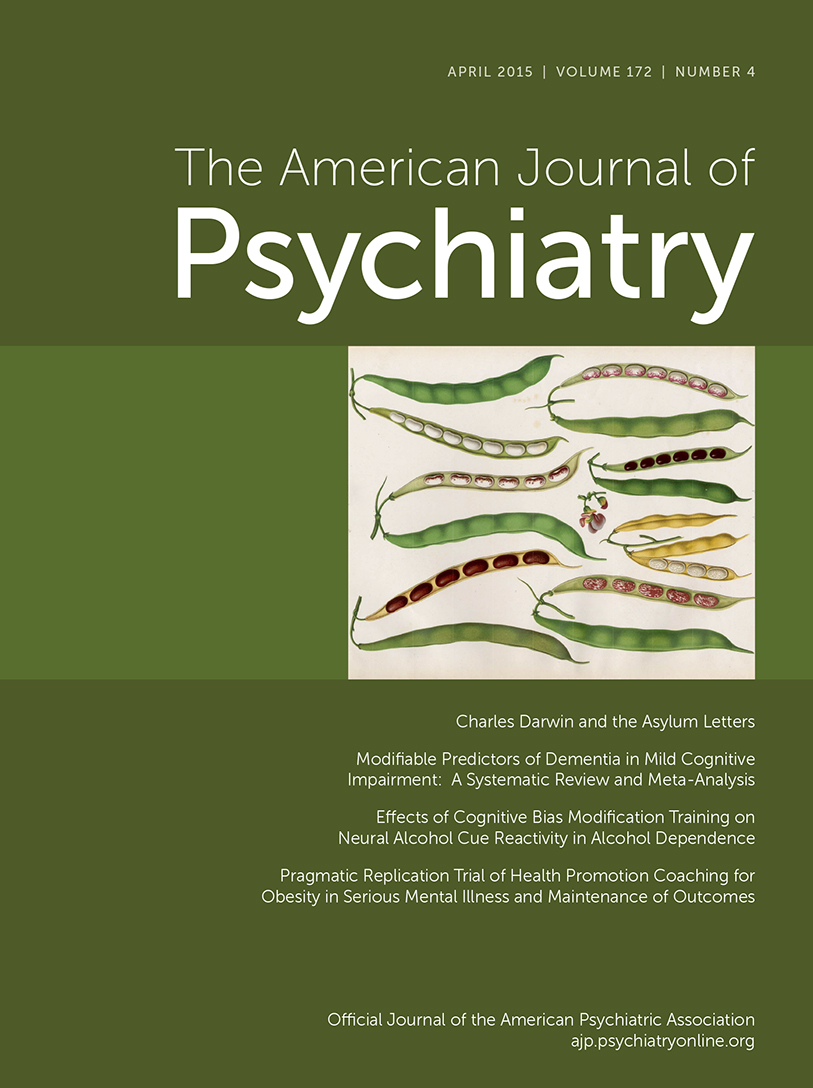Response to Uher et al.
To the Editor: Dr. Uher et al. attempted to replicate the results of our study on pharmacogenetics of antidepressants in Mexican Americans, using “the whole combined sample analysis of 2,256 individuals from the United States and Europe with major depressive disorder treated with all types of antidepressants.” In genetics, the phenotype is diagnosis; therefore, it is highly feasible to replicate from Mexican Americans to other populations, as we have previously done (1). In contrast, in pharmacogenetics, the phenotype studied is drug response, which is a defined clinical pharmacological outcome. Consequently, a valid replication would consist of a study in which the same drugs were administered under the same conditions to the same population: in our study, this was a prospective, placebo lead-in pharmacogenetic double-blind trial of fluoxetine versus desipramine for the treatment of major depression in U.S.-based Mexican Americans, who were meticulously assessed by us to exclude confounding variables, such as other drugs or diagnoses. Those conditions were not met in the work conducted by Uher et al.; therefore, their results do not represent replication. They appeared to have used a retrospective, convenience sample, consisting of subjects with depression who took any antidepressants. That does not by any means replicate our study design. Clinically, patients respond specifically to some antidepressants and not to others (2); therefore, responses to specific drugs need to be individually assessed. Moreover, as we showed previously, at least for the Mexican American population, variations in allele frequency across this and other ethnic groups are higher in many studies than statistically significant differences between case and control subjects (2–4). It is highly likely that this was the case in relation to the results now reported by Uher et al. Because, to our knowledge, no other study has obtained the same phenotype of response to the same drugs in a prospective manner in the same population, our results cannot be, at this point, subjected to a true replication effort.
We strongly disagree with Uher et al. that “the comparison between the reported results and the publicly available meta-analysis cautions against accepting results from intensive analyses of small samples without replication.” Mexican Americans are the most rapidly growing ethnic group in the United States. Several large areas of the United States now have minority majority populations (i.e., their populations predominantly consist of minority ethnic groups). Those areas include the two most populous states: California (with 38,802,500 people [6.6% black or African American, 14.1% Asian, 38.4% Hispanic, and 39.0% white/not Hispanic or Latino]) and Texas (with 26,956,958 people [12.4% black or African American, 4.3% Asian, 38.4% Hispanic, and 44.0% white/not Hispanic or Latino]) (5). Medical research has been typically conducted in large, white non-Hispanic populations, and the results may eventually trickle down much later to ethnic minority groups in repetitive replication studies, when those are conducted at all. Our approach represents a paradigm shift in which health and medical research disparities are addressed through innovative discovery studies in minority populations. It is inappropriate to suggest that intensive, focused studies cannot be conducted and published on ethnic minority populations because in the context of interethnic variations in allele frequencies, other groups cannot immediately obtain the same results when their convenience stock of frozen samples from Caucasian subjects is queried.
1 : Prediction of susceptibility to major depression by a model of interactions of multiple functional genetic variants and environmental factors. Mol Psychiatry 2012; 17:624–633Crossref, Medline, Google Scholar
2 Licinio J, Wong M-L (eds): Pharmacogenomics: The Search for Individualized Therapies, Hoboken, NJ, Wiley-Blackwell, 2009Google Scholar
3 : Lower frequency of CYP2C9*2 in Mexican-Americans compared to Spaniards. Pharmacogenomics J 2004; 4:403–406Crossref, Medline, Google Scholar
4 : Novel sequence variations in the brain-derived neurotrophic factor gene and association with major depression and antidepressant treatment response. Arch Gen Psychiatry 2009; 66:488–497Crossref, Medline, Google Scholar
5



